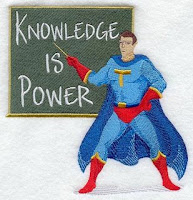In the last instalment we looked at the two different types of people in this world - owners and victims. After reading the article many of you may have been surprised to find that there were areas in your life where you are living in the ‘victim vacuum’ - making excuses and blaming others for things that go wrong. There is nothing wrong with this. People have done this for generations and have lived perfectly normal lives. The difference is that these types of people tend to experience a series of ups and downs, highs and lows throughout their lives. Why is this? Because they are at the mercy of the things that are going on around them. As we identified in the last blog there is another option. To take ownership and responsibility for the situation which then gives you the power, puts you in control and allows you to be the solution.
So how do we do this? The answer as usual is simple - not easy. It’s a matter of altering your current mindset and practicing a new way of thinking. I won’t lie to you it will take time - just look at how many years it has taken you to perfect your current mindset. What I will promise you is that with each attempt you will create new neural pathways in your mind and begin to make progress. At the end of the day this what it is all about.

With that said lets get straight into it. Today we are going to look at just two of the questions that owners ask themselves. As we do this we will look at the difference that makes the difference with this type of thinking.
Questions 1:
What else could this mean?
The first question is the key to opening your mind. Too often we jump to assumptions when something occurs and automatically assign a meaning based on similar situations that have occurred in the past. Interestingly enough we are evolutionarily wired to do this but it limits us drastically in a modern day society. You may say ‘But it is the same as the last time though’. But is it really? There are millions of tiny and subtle variants involved in each situation - the chances of every one of them being exactly the same in this new situation is very minute. The difference between and owner and a victim is not that owners don’t make assumptions or automatically assign meaning to situations - it’s that they have the awareness to catch themselves out when they do and then consider all of the other things that it could possibly mean. This allows them to choose the meaning that works for them best and that is going to put them into the most resourceful frame of mind.

Before we move on let me ask you if you have ever had a situation where you automatically assumed something, and then became angry, panicky or stressed only after a period of time to find out there was nothing to get bothered about? If you are like me there will be many examples that come to mind. All of that time between when we made the assumption and when we found out it was wrong was spent helpless and wasted for nothing. By asking ourselves this question we open our eyes to all of the other possible meanings or solutions so that you choose the one that is going to be helpful or start identifying actions that you can take immediately to rectify the situation.

Question 2:
How can I use this or what can I learn?
This is the second key to being an owner. After the event is all said and done they look for what they can take out of it. What knowledge do they now have? What worked and what didn’t work about what they did? And what have they learned that they can apply in the future. Far too often people forget this step - they are just happy to have found their way out of dark only to end up stumbling on the same problem or in the same kind of relationship over and over again. Sound like anyone you know? For some this may be a little overwhelming - as you may have many areas that are currently troubling you. I would suggest that you start with the major ones first and gradually work your way through. Breaking the task into small chunks is always less daunting and allows you to measure the results as you go along the way which will keep you motivated.


So there you go - as I said they seem simple enough but will make a major difference in the way you think and react to situations. Stick with it. It will take a little bit of practice to get into the swing of things and to program your mind to this way of thinking. As they say Rome wasn’t built in a day and neither is an owners mindset.
I am currently putting together a new promotion. If you click the 'Like' button on my page in the top left hand corner you will go in the draw for an hours one on one coaching with me. I will be randomly drawing a name out for ever 50 people that click like.
Until we meet again
Dan









